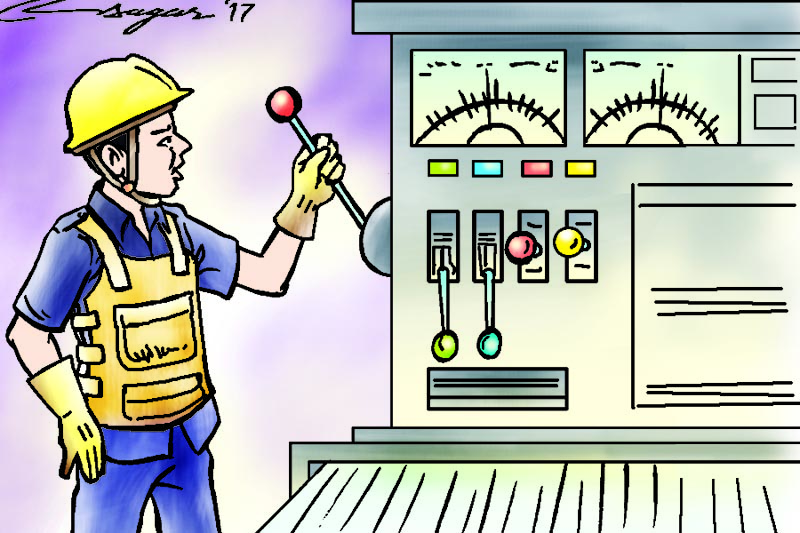Minimum monthly wage for workers set at Rs 13,450
Kathmandu, July 9
As envisioned by the Labour Act-2017, the government has revised the minimum monthly wages of industrial workers in the country to Rs 13,450.
According to Gokarna Bista, minister for labour, employment and social security, the decision in this regard was taken today following a recommendation from the Minimum Wage Fixation Committee.
According to Laxman Mani Mainali, secretary at the Ministry of Labour, Employment and Social Security (MoLESS), a tripartite discussion between the government, employers and trade unions had been held earlier to revise the minimum wage of workers.
The revised monthly wage is Rs 3,750 or 38.65 per cent higher than the previous minimum monthly wage of Rs 9,700.
The committee was formed by the Ministry of Labour on April 20 and is led by Ram Prasad Ghimire, joint secretary of MoLESS.
The minimum wage of Rs 13,450, which will be applicable from July 17, includes basic salary of Rs 8,455 plus Rs 4,995 in allowances. As per the recommendation committee, a worker will get daily wage of Rs 517, which includes Rs 325 as basic and Rs 192 as allowance. The new hourly wage has been set at Rs 69, with Rs 43 as basic and Rs 26 in allowance.
Meanwhile, the ministry said that in addition to the wage, workers will also get ‘social security’ of around Rs 2,500, as the new Social Security Act is coming into force from July 17. The total additional minimum entitlement for workers in provident fund and gratuity will be 18.33 per cent of basic wage or Rs 1,549, and festival expenses of 8.33 per cent of basic wage or Rs 704. This means an employer would now have to shell out around Rs 16,000 per worker per month in wages and other benefits.
Although not fixed yet, the ministry officials said they will slightly also increase allowances related to maternity, health and accidental insurances, which will raise the social security allowance to around Rs 2,500.
Proper implementation of the act will ensure that all workers will get provident fund and pension, among other facilities. The government also said that all workers should be paid their wages via banking channels from now onwards.
Minister Bista said that the government encourages the discussion regarding minimum wage to continue and that the workers have the right to negotiate with their employers through collective bargaining. “The government is committed to implementing the Labour Act and will regularly monitor the implementation of the new wage system.”
BhawaniRana, president of the Federation of Nepalese Chambers of Commerce and Industry — the largest umbrella body of private sector organisations — pledged to fully support proper implementation of the new wage system.
Hari Bhakta Sharma, president of the Confederation of Nepalese Industries, said that the new payment system is based on market price and current production status of Nepali industries.






